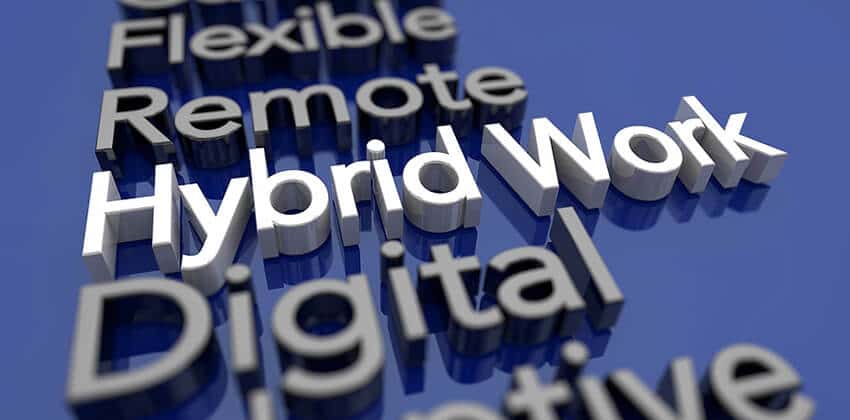
Some days feel like nothing but work, work, and more work. If that happens from time to time, you probably chalk it up to a weird fluke. But when it’s happening all the time, you may feel like you lack work-life balance, with work always winning.
Achieving work-life balance may seem like an impossible dream, with many feeling that work will always require more of their time and attention than they’d like. But it is possible to find an equation that results in work-life balance for you.
What Is Work-Life Balance? Definition & Meaning
Work-life balance means you’re able to equally prioritize the demands and desires of your personal and professional lives. But “equal” doesn’t mean you’re spending the same number of hours on each every day or week. When you have work-life balance, you’re able to give each side your attention regularly without feeling that one is taking up too much of your time over the other.
8 Tips to Improve Work-Life Balance
1. Go For What Works
Many people think that the “right” definition of work-life balance means spending equal amounts of your time and energy on each. However, for most people, it’s impossible to find enough hours in the day to split equally between the two.
Instead of trying to balance both sides of the scale, find a work-life balance that lets you feel satisfied and productive every day. If that means working extra hours three days a week, so you have more personal time for hobbies and families four days a week, go for it. As long as it’s a schedule that works for you and gives you the balance you desire, it’s the right one for you.
2. Prioritize You and Your Health
No matter how much work you want to accomplish or how much time you want to spend on passion pursuits, if you’re not prioritizing yourself and your health, you won’t have any work-life balance.
Include “you” time in your work-life balance calculations to help you maintain your physical and mental health. That could be time every day to meditate or exercise, making sure you eat healthily, or checking in with the doctor every few months.
3. Make Time to Unwind
When you work in an office, you might spend your commute working or listening to a work-related podcast. Likewise, if you work at home, you might use what would have been your morning commute to dive in and start the day right after coffee.
While it’s true that working during your commute (or “commute”) can help you get a head start or finish up some tasks, consider using that time to disconnect from work instead. Using it as a transition between work and home can help you find the work-life balance you need.
For example, instead of listening to a work-related book, why not read a juicy novel or intriguing memoir? Instead of getting an early jump on your day, use that time for a walk with the dogs or a slow cup of coffee.
Jumping right from work to home (and back again) can make it feel like you never get a break. But building a buffer between the two that helps you relax and unwind from the day (or prepare for it) can help you feel more energized and less stressed.
4. Maintain Boundaries
In addition to transitioning between work and home, make sure you’re setting and maintaining healthy boundaries between the two.
No matter where you work, in today’s connected world, it’s easy for work to get a hold of you whenever something comes up. Likewise, it’s easy to check in on work when we’re feeling bored or, worse, because we feel guilty about not working.
But letting work creep in when you’re off the clock can lead to you feeling unbalanced. Setting boundaries and sticking to them will help you find work-life balance.
Let work know that you’re not available after five p.m. unless it’s an emergency (and define what an emergency is). Then, if someone contacts you, make sure that you don’t respond until the next day (or following Monday) unless it truly is an emergency.
5. Take Breaks
Work-life balance can also come from taking breaks throughout the day. It gives your brain a chance to relax and recharge while also helping you feel like you aren’t working all day long!
Instead of working through lunch, take it to the park or eat with coworkers. If you have to eat at your desk, don’t work. Read a book, check social media, or have a chat with a friend.
Likewise, make sure you take breaks throughout the workday—once every 60 minutes is a good goal. A walk to the watercooler to refill your glass or a trip around the block counts. Even “micro-breaks” where you stand up and stretch at your desk for a minute can do wonders for you, your brain, and your work-life balance.
6. Set Priorities
Your professional and personal lives probably have a zillion tasks to do every day. And while they may all feel like urgent priorities, the reality is that they probably aren’t.
To improve your work-life balance, take some time at the end of every day (or the beginning) and figure out which tasks are critical and which ones can wait. You might be surprised at how much isn’t as urgent as you thought it was.
As you create your task list, though, make sure work isn’t taking up all the priority spots. Give your personal tasks some priority too, and you may find you’re achieving more work-life balance than ever.
7. Get Flexible
If you have a flexible job, you’re in luck! One great way to help improve your work-life balance is to flex your schedule.
Figure out when you perform at your peak, then arrange your schedule accordingly. This can help you accomplish more in less time, leaving room for the other things you want and need to do.
And if you don’t have a flexible job, talk to your boss about flexing your schedule. Focus on how much more you’ll be able to get done and how that will benefit the company.
8. Ask for Help
If you still feel like you can’t achieve the work-life balance you need, ask for help. Talking to your boss is a great place to start. But if that isn’t possible (or doesn’t work out), ask your friends and family for help.
Redistributing the duties and responsibilities at home can go a long way toward helping you find work-life balance.
Equilibrium Is Possible
Improving work-life balance won’t happen overnight, or even in a few weeks. But taking some slow and steady steps can help you rethink your work and personal responsibilities, resulting in a formula that improves your work-life balance.
Don't forget to share this article with friends!




